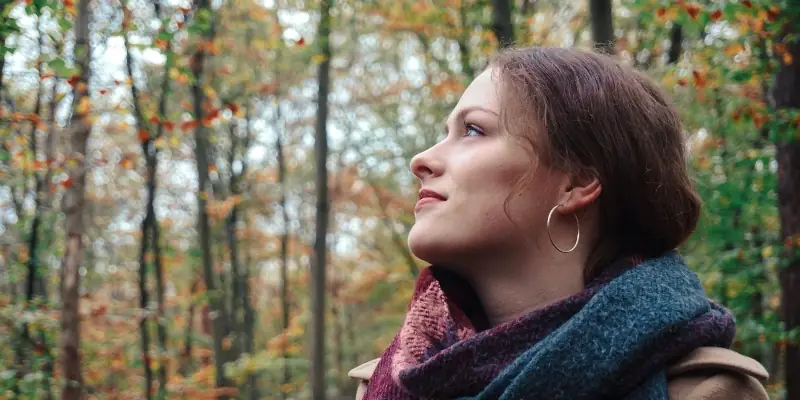Recently, I have been thinking about what kind of life suits me. After solving all my mental problems, I wanted a new goal. Today, I will talk about life directions based on personalities. This might allow us to imagine our ideal goals.
How to find a lifestyle that suits us
Sometimes, we lose our life direction and want a new goal that suits us. After accomplishing or giving up something we had devoted ourselves to, we want to create a new life.
However, we don’t know what kind of lifestyle suits us. Even if we can try everything, we want a clear goal because a life direction gives us mental comfort. The determination makes the hesitation go away.
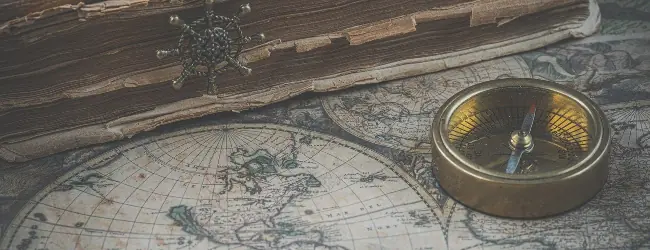
The directions that I introduce below might work in that case. I created them because I wanted to set a new goal.
The four types of personalities
First, let me explain the four types of personalities that I use every time. It is as shown in the following image:
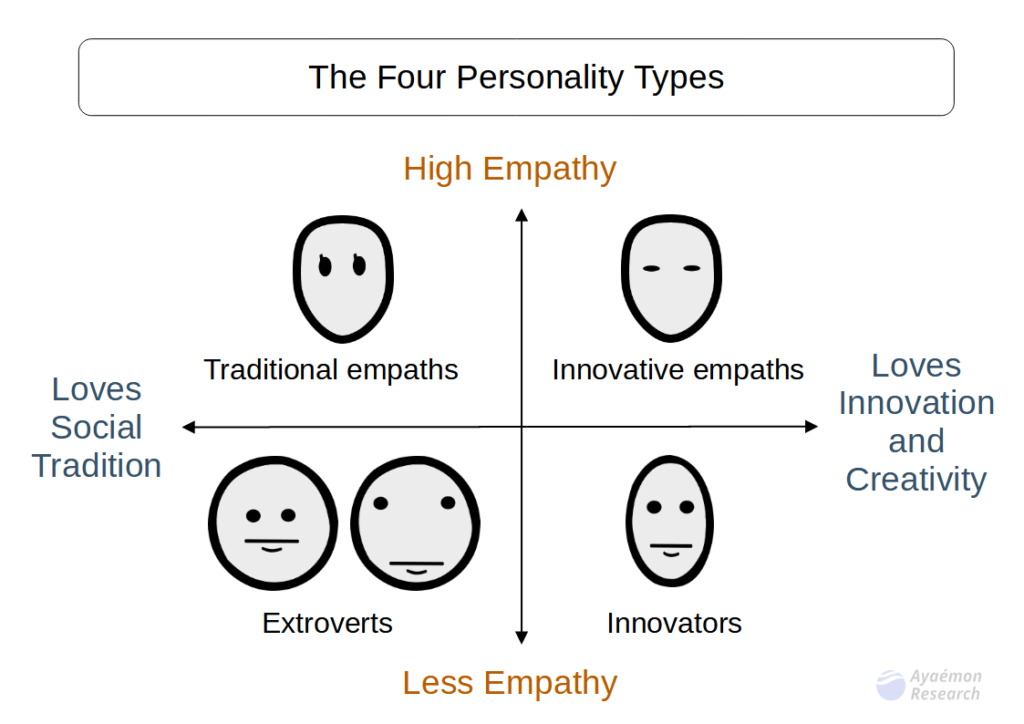
We classify our personalities based on two axes. One is whether the person is highly empathic or not. The other is whether the person prefers to keep changing or maintain their lifestyles after growing up.
Each direction in life
In my opinion, each personality has its direction, as follows:
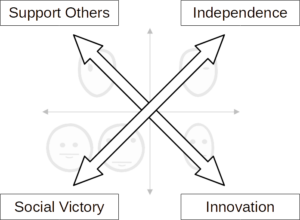
- Extroverts: The personality that is suited to the pursuit of social victory. They want to belong to stronger communities because they can depend on them. They like justice. It means that strong social power rules over other people.
- Traditional empaths: The personality for the pursuit of supporting others. They want to help people, such as weak people, people with trouble or handicaps, outstanding people who help others, or people with talent but still not evaluated. They tend to trust others who have confidence, regardless of rationality.
- Innovative empaths: The personality that is suited to the pursuit of independence. They like to create their lives based on individuality and rationality. That allows them to establish a solid, stable individual life, regardless of their social state.
- Innovators: The personality for the pursuit of innovation. They create new ways based on rationality, truth, and essence. They try to improve constantly.

We can see they have opposite personalities. Although they are opposed, they are all ways to survive or contribute to people, including fulfilling themselves.
The direction for innovative empaths
I will focus on the personality of innovative empaths this time because it is the most incomprehensible nature.
Independence would be the most suitable direction for innovative empaths, in my opinion.
If we are innovative empaths, we have various wants that never overlap with social values. For example, we might not be good at activities that require patience like sales, and want to live peacefully in a quiet place. We might not like a lot of mandatory schedules and want to live freely as we feel that day. Showing our talents means being independent from society.

In more detail, it will be in the following direction:
- We live based on our values without disturbing society.
- We avoid conflict as much as possible.
- We depend on affordable, abundant things to establish independence.
- We live on the balance of traditional empaths and innovators.
Two opposing issues: our values vs. social values
Let me explain the logic behind them.
We have to realize two opposing issues. One is a desire for ourselves. The other is a wish to avoid disturbing society as much as possible. We don’t want to trouble others while wanting to live as we are.
Perhaps the answer will often be taking a distance from the majority. If we do so, we can live freely without causing trouble with others. Fortunately, innovative empaths can live comfortably, even if we have less connection with society.

Of course, we must disturb society more or less when we leave the community. However, we don’t have to care for it because society is a place where people conflict for their gain. That is why we can leave a community that doesn’t suit us, even if it causes trouble for other members. That is a problem of the community, not ours.
Life toward independence means avoiding social conflict as much as possible.
What to depend on, to be independent
However, we have to rely on something to live. To establish more stable independence, we depend on affordable, abundant things. We use them well with our creativity. That gives us a solid independence.
For example, if we live by the sea and can secure a lot of affordable fish, we can eat them mainly. If we live in a place with cheap wood, we can use it for energy. If we have a talent for creating something, we use it for our lives. That gives us an individual and independent life.

The style of helping
We live between the values of traditional empaths and innovators. If we are among them and balance well, we will progress.
In other words, we live between supporting others and innovation. We can limit whom we help with reason. We don’t help someone just because they are sad because we can think logically. We know a bad experience often brings us learning that leads us to happiness. We don’t know what will lead us to a better future. We know that easy help can ruin a person.
Our reason decides whom to help. That is our style of help based on rational thinking.
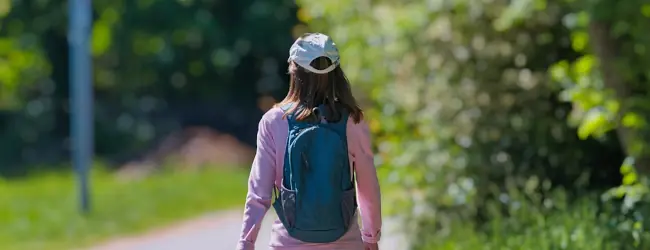
Independence and collaboration
Then, we head toward independence based on our values.
Of course, we could collaborate with other creators. Independence and collaboration are different things. We can cooperate with someone in the same direction, even if the final goal is different.
Perhaps we are contributing enough just by living independently. Living independently is one way to live. The examples of our lives allow others to do so. That is why independence will be a direction for innovative empaths.
Conclusion
If we want to know what lifestyle suits us, the directions I introduced above might help.
For innovative empaths, independence could be a direction in life.
Thank you for reading this article. I hope to see you in the next one.


